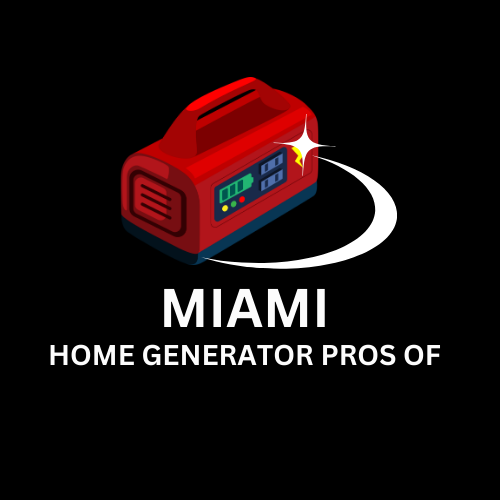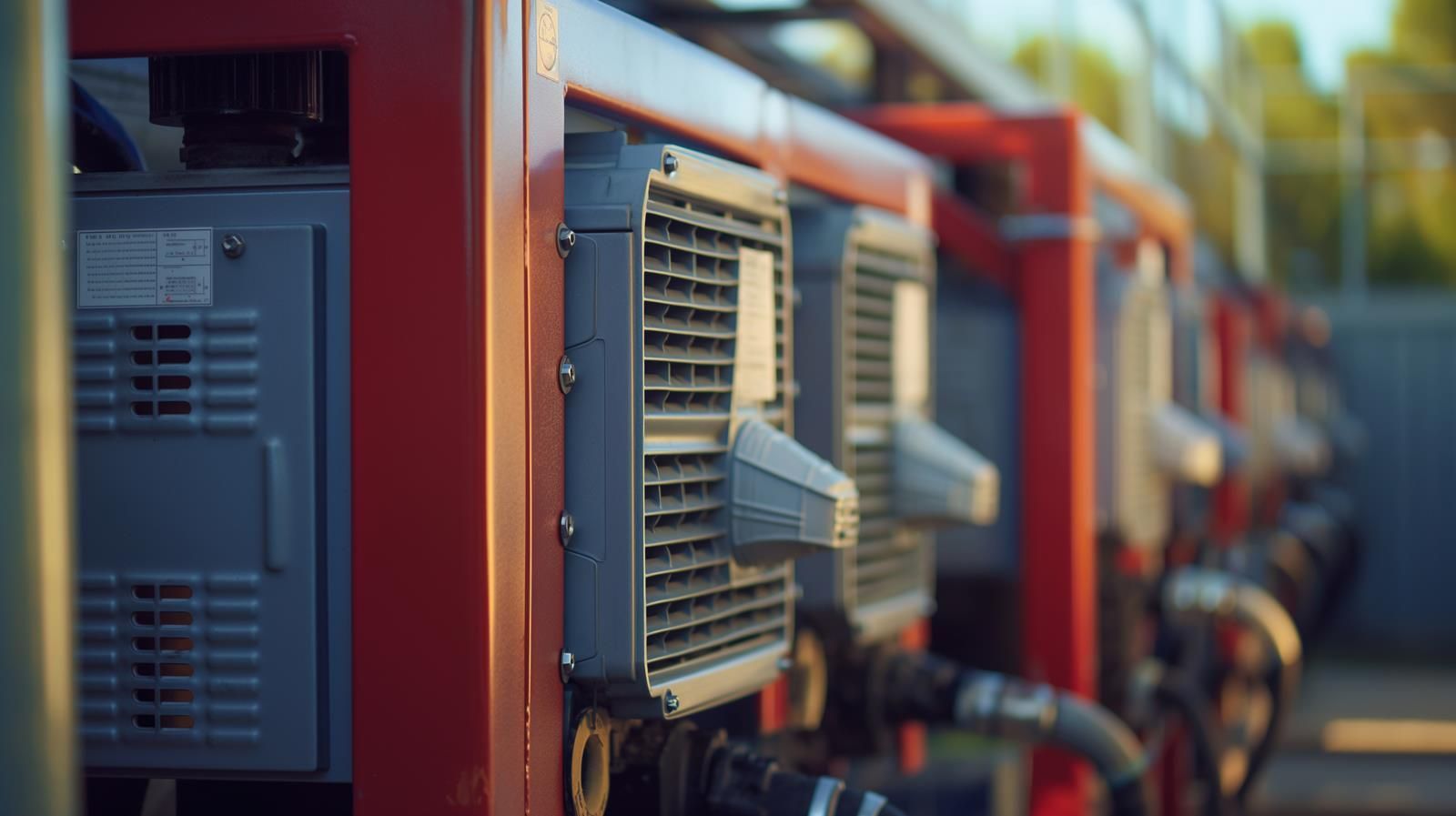
Propane Generators in Miami FL
A propane generator is a device that generates electrical power using propane gas as its fuel source. These generators are known for their reliability and efficiency, making them a popular choice for both residential and commercial applications. When evaluating a propane generator, it is essential to consider its power output, fuel efficiency, and overall durability. Key features often include automatic start capabilities, noise levels, and the type of transfer switch used.
Components and Design Features
A typical propane generator comprises several key components. The engine, which burns the propane gas, is the core of the system. The alternator converts mechanical energy into electrical power. A control panel manages the generator's operations and provides crucial information such as power output and fuel levels. Other design features to consider include the generator’s casing, which protects internal components and reduces noise, and the cooling system, which prevents the engine from overheating.
How It Works
Propane generators operate by combusting propane gas in an internal combustion engine. The engine’s pistons move to convert the fuel’s chemical energy into mechanical energy. This mechanical energy then drives the alternator, which generates electrical power. The electrical power is then distributed to your home or business through the connected circuits. Propane generators can be either standby or portable, with standby units providing power automatically during an outage, while portable models offer flexibility and mobility.
Comparison to Other Types of Generators
When comparing propane generators to other types, such as diesel or gasoline generators, several factors come into play. Propane generators tend to be cleaner burning and produce fewer emissions compared to gasoline or diesel models. They also often have a longer shelf life for fuel, as propane doesn’t degrade over time. However, diesel generators might offer greater power output for heavy-duty needs, while gasoline generators are usually less expensive upfront but may require more frequent refueling.

We will get back to you as soon as possible.
Please try again later.
Installation and Operation
Installing a propane generator involves several steps. It begins with selecting a suitable location that provides adequate ventilation and is compliant with local regulations. The generator needs to be connected to a propane tank, which supplies the fuel. Professional installation is recommended to ensure that the generator is properly connected to your electrical system and that all safety measures are in place. Operation typically involves starting the generator manually or automatically, depending on the model, and ensuring that it is regularly maintained for optimal performance.
Common Applications
Propane generators are versatile and find applications in various settings. In residential areas, they provide backup power during outages, ensuring that essential appliances and systems remain operational. Commercially, they can power equipment and systems for businesses, especially in areas prone to frequent power disruptions. Additionally, propane generators are used in agricultural settings for powering tools and machinery and in recreational settings, such as camping, where portable models offer a reliable power source.
Cost and Economic Considerations
The cost of a propane generator can vary widely based on its size, power output, and features. Generally, propane generators can be more expensive initially compared to gasoline models, but their fuel efficiency and lower emissions can offer long-term savings. Additionally, propane is often less costly than gasoline or diesel in many areas, contributing to lower operational costs. It’s also important to consider maintenance costs and the potential need for professional service.
Troubleshooting and Maintenance
Maintaining a propane generator involves regular checks and servicing to ensure its reliability. Common maintenance tasks include checking the oil level, inspecting the air filter, and ensuring that the fuel supply is adequate. If the generator fails to start or exhibits performance issues, troubleshooting may involve checking the fuel lines, battery condition, and electrical connections. Regular professional inspections can help identify and resolve potential issues before they lead to more significant problems.
For more information on
propane generators in Miami, FL, including recommendations tailored to your needs or to schedule an installation, feel free to reach out to us. Our team is ready to assist you with any questions or concerns, ensuring you get the best solution for your power generation needs. Contact us today to learn more and to get started with your propane generator solution.
Propane Generators for RVs: Ensuring Power On-the-Go
When you’re on the road in your RV, having a reliable power source is crucial. Whether you’re camping in a remote location or parked at a scenic overlook, having access to electricity can make a huge difference in your comfort and convenience. Propane generators are a popular choice among RV owners because they offer a dependable and efficient way to keep your appliances running and your devices charged. Propane generators are specifically designed to provide electricity for RVs, ensuring that you have power wherever your travels take you. Here’s why they’re a great option:

-
Efficient Fuel Source
Propane is an efficient fuel that burns cleanly and produces less pollution compared to gasoline or diesel. This means propane generators are not only more environmentally friendly but also often quieter than other types of generators. They can run for longer periods on a single tank of propane, making them ideal for extended trips.
-
Convenient Fuel Supply
Unlike gasoline, which can degrade over time and requires careful storage, propane is stable and has a longer shelf life. Propane tanks are easy to refill and can be sourced from numerous locations, including RV parks and service stations. This convenience ensures that you won’t run out of fuel easily and can focus on enjoying your trip.
-
Safety and Maintenance
Propane generators are known for their safety features. Propane is less flammable than gasoline and has a lower risk of causing fires or spills. Additionally, propane generators typically require less maintenance compared to gasoline models. They have fewer moving parts and don’t need oil changes, reducing the overall upkeep needed to keep them running smoothly.
-
Compact and Portable
Many propane generators designed for RVs are compact and lightweight, making them easy to store and transport. They can fit into tight spaces in your RV and won’t take up too much room. Their portability means you can take them out and set them up quickly whenever you need power.
-
Quiet Operation
One of the main advantages of propane generators is their quieter operation compared to gasoline or diesel generators. This means you won’t have to deal with loud noises disrupting your peaceful surroundings. A quieter generator also helps maintain a more serene environment for you and your fellow travelers.
-
Reliable Power Supply
When you’re on the road, having a reliable power supply is essential. Propane generators provide consistent and stable electricity, ensuring that you can keep your RV’s systems running without interruption. Whether you need to power your air conditioning, refrigerator, or other essential appliances, a propane generator has you covered.
If you’re considering a propane generator for your RV, we’re here to help you find the perfect model to meet your needs. Our team of experts can provide you with detailed information on different generator options, assist you in choosing the right size and type, and offer support with installation and maintenance. Don’t let a lack of power ruin your travels—reach out to us today to learn more about propane generators and ensure you’re ready for your next adventure. Contact us now to get started!
How to Properly Store and Handle Propane for Your Generator
Propane is a versatile and efficient fuel for generators, providing reliable power during outages or off-grid situations. However, safe and effective use of propane requires proper storage and handling. Ensuring that you follow the right procedures can prevent accidents, maintain the quality of the fuel, and prolong the life of your generator. In this guide, we'll walk you through the essential steps for storing and handling propane safely.
-
Choose the Right Storage Location
Choose the Right Storage Location
Selecting an appropriate location for storing propane is crucial. Propane tanks should be kept in a well-ventilated area away from direct sunlight, heat sources, and flammable materials. Ideally, the storage area should be outdoors, in a dry place, and protected from extreme temperatures. Avoid storing propane indoors or in confined spaces, as this increases the risk of gas accumulation and potential hazards.
-
Secure the Tank
Ensure that the propane tank is securely anchored to prevent it from tipping over or moving. Use proper mounting equipment or a sturdy base to stabilize the tank. Additionally, check that the tank is upright and not lying on its side, as this can affect the pressure and functionality of the propane.
-
Keep the Tank Away from Children and Pets
Propane tanks should be stored out of reach of children and pets. Proper fencing or barriers can help keep these areas secure. Educate your family about the importance of not tampering with the propane tank or its equipment.
-
Regularly Inspect the Tank
Routine inspections are essential for safety. Check the propane tank for signs of damage, rust, or leaks. Ensure that the valve is functioning correctly and that there are no loose connections. If you notice any issues, contact a professional for maintenance or replacement.
-
Handle Propane with Care
When handling propane, use appropriate protective equipment, such as gloves and safety glasses. Always handle the tank gently to avoid dropping or impacting it. When connecting or disconnecting the propane tank from your generator, make sure that the generator is turned off and that you follow the manufacturer’s instructions carefully.
-
Understand Propane Labels and Warnings
Understand Propane Labels and Warnings
Familiarize yourself with the labels and warnings on your propane tank. These labels provide important information about safety, usage, and emergency procedures. Always follow these instructions to ensure safe handling and storage.
-
Store in a Ventilated Area
Good ventilation is key to preventing the buildup of propane gas. Ensure that the storage area has adequate airflow to dissipate any potential leaks. This helps prevent dangerous situations and ensures that propane remains safe to use.
-
Follow Local Regulations
Different regions may have specific regulations regarding propane storage and handling. Check with local authorities or fire departments to ensure that you comply with all relevant safety standards and legal requirements.
-
Use the Propane Efficiently
Use the Propane Efficiently
To maximize the life of your propane and ensure efficient operation of your generator, use the fuel as needed and avoid overfilling the tank. Be mindful of your generator’s fuel consumption and plan accordingly.
-
Dispose of Empty Tanks Properly
When a propane tank is empty, it must be disposed of correctly. Many areas have designated facilities for recycling or proper disposal of propane tanks. Do not throw away tanks in regular trash or leave them in unauthorized locations.
Proper storage and handling of propane are vital for maintaining safety and efficiency in your generator use. If you have any questions or need assistance with propane-related concerns, don’t hesitate to reach out to us. Our team is here to help with expert advice, maintenance services, and any other propane-related needs you may have. Contact us today to ensure your generator runs smoothly and safely.
Let's Connect!
At Home Generator Pros, we understand the importance of having a reliable power source in your home. That's why we are committed to providing top-quality generator installation and maintenance services to our valued customers. Our team of experts is highly trained and experienced in all aspects of generator installation and servicing. So, if you want peace of mind during power outages, don't hesitate to hire us today. We'll keep your lights on and your appliances running smoothly, no matter what the weather may bring.